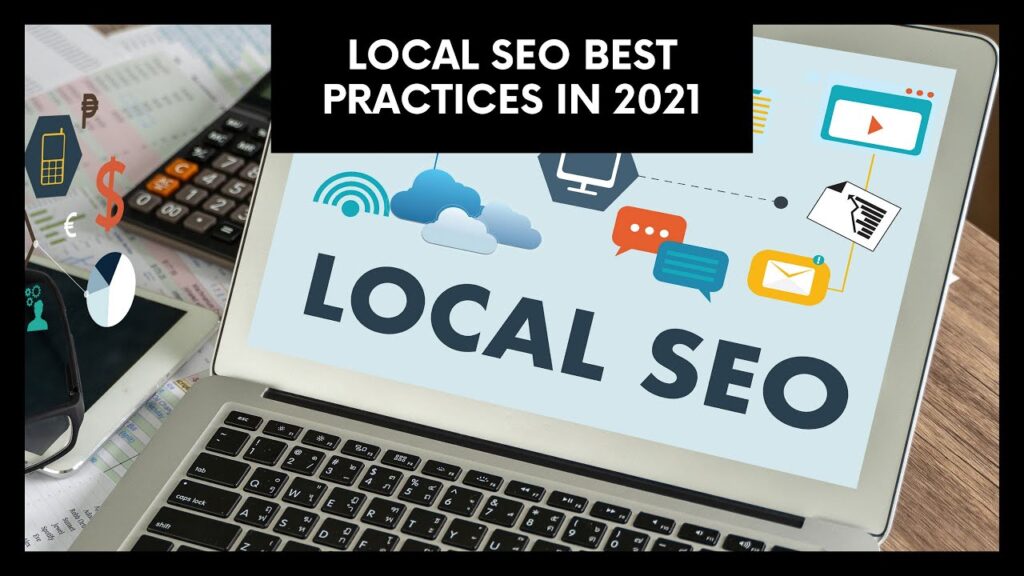Introduction
In today’s digital age, small businesses have to work smarter to stand out in a competitive marketplace. One of the most powerful tools for boosting visibility and attracting local customers is Local SEO (Search Engine Optimization). Local SEO is the process of optimizing your online presence to rank higher in local search results on search engines like Google.
Whether you’re a local restaurant, a retail store, or a service-based business, Local SEO is crucial for driving traffic to your website and increasing foot traffic to your physical store. This comprehensive guide will explain why Local SEO is important for small businesses and provide actionable tips for improving your local search rankings.
Why Local SEO Matters for Small Businesses
With the rise of mobile devices and voice search, consumers are increasingly looking for businesses near them. According to a study by Google, 46% of all Google searches are looking for local information. That’s a huge chunk of potential customers who are ready to buy—if your business shows up in the search results.
For small businesses, especially those operating in competitive local markets, Local SEO can be the difference between getting noticed and getting lost in the sea of search results. By optimizing your online presence for local search, you can increase your visibility and attract more customers from your community.

The Key Components of Local SEO
Effective Local SEO involves several key elements. Let’s explore the most important factors that influence local rankings:
1. Google My Business (GMB) Listing
One of the first steps in improving your local SEO is to claim and optimize your Google My Business profile. GMB is a free tool provided by Google that allows businesses to manage how they appear in local search results, including Google Maps.
Here’s how to optimize your GMB listing:
- Claim Your Listing: If you haven’t already, claim your business on Google My Business.
- Complete Your Profile: Add accurate information about your business, including name, address, phone number (NAP), business hours, and website URL.
- Add Photos: Include high-quality photos of your business, products, and services to engage customers.
- Encourage Reviews: Customer reviews play a crucial role in local search rankings. Encourage happy customers to leave reviews on your GMB profile.
2. Local Keywords
Using the right local keywords on your website is essential for ranking in local search results. Local keywords are phrases that combine your service or product with a location. For example, “best pizza in New York City” or “plumbing services in Dallas.”
Here’s how to optimize your website with local keywords:
- Use Location-Based Keywords: Incorporate your city, neighborhood, or region in your website’s title tags, meta descriptions, headings, and content.
- Research Long-Tail Keywords: Long-tail keywords are more specific phrases that have lower competition but higher conversion rates. For instance, “affordable web design in Los Angeles” can help you target customers who are ready to purchase.
3. NAP Consistency
NAP stands for Name, Address, and Phone Number. Consistency in NAP across your website and online directories is crucial for local SEO. If your NAP information is inconsistent or incorrect, search engines may not trust your business and could rank it lower in local search results.
Make sure your NAP is the same across:
- Your website
- Google My Business profile
- Social media accounts
- Online directories (e.g., Yelp, Yellow Pages, BBB)
4. Local Content
Creating locally relevant content is another great way to boost your local SEO. By publishing blog posts, case studies, or articles related to your community or area of service, you can improve your relevance in local search results.
For example, if you run a local bakery, you could write blog posts like:
- “Top 5 Best Bakeries in [City Name]”
- “How We Use Local Ingredients at [Business Name]”
- “How to Order the Best Custom Cakes in [City Name]”
This kind of content not only boosts your local SEO but also helps establish your business as an authority in your local area.
5. Local Citations
Local citations are mentions of your business on other websites or directories, even if they don’t have a link to your site. Citations play a significant role in improving your local SEO rankings because they help search engines verify that your business exists and is reputable.
To build local citations, ensure your business is listed on:
- Online directories like Yelp, Yellow Pages, and TripAdvisor
- Industry-specific sites or local chambers of commerce
- Local blogs or news websites
Ensure your NAP information is consistent across all these platforms.

Tips to Improve Local SEO for Small Businesses
Here are some additional tips to improve your local SEO strategy:
1. Optimize for Mobile
Since many local searches are done on mobile devices, it’s essential that your website is mobile-friendly. Ensure your website is responsive, loads quickly, and provides a smooth experience for mobile users.
2. Use Structured Data Markup
Implement Schema Markup (also known as structured data) on your website. This helps search engines understand the context of your content and can improve your chances of appearing in rich snippets or local search features, such as the local pack.
3. Create a Local Landing Page
If you serve multiple locations, create separate landing pages for each location. For example, if your business has multiple stores in different cities or neighborhoods, create individual pages that target those specific locations with localized content.
4. Leverage Social Media
Social media platforms can also help your local SEO efforts. Create a strong social media presence and engage with local communities. Share location-based content, participate in local events, and use location tags in your posts. Social signals may not directly impact rankings, but they can help increase visibility and drive more traffic to your site.
5. Monitor Your Results
Use tools like Google Analytics and Google Search Console to track your local SEO performance. Keep an eye on your website traffic, local search rankings, and customer interactions to identify areas where you can improve your strategy.
Common Mistakes to Avoid in Local SEO
While Local SEO is a powerful strategy, many businesses make mistakes that can hurt their rankings. Here are some common mistakes to avoid:
1. Inconsistent NAP Information
Having different business name, address, and phone number formats across different websites can confuse search engines and customers. Always ensure your NAP is consistent.
2. Ignoring Reviews
Reviews are a key ranking factor for local SEO. Failing to ask customers for reviews or neglecting to respond to feedback can harm your online reputation and rankings.
3. Poor Mobile Experience
With most local searches being performed on mobile devices, it’s crucial that your website is mobile-optimized. Slow load times and poor mobile usability can lead to higher bounce rates and lower rankings.
4. Overlooking Local Link Building
Building backlinks is a vital part of SEO, and the same goes for Local SEO. Focusing only on national or international links can hurt your local rankings. Focus on acquiring backlinks from local websites, such as local news outlets, bloggers, and business associations.
Why Local SEO Matters for Small Businesses
With the rise of mobile devices and voice search, consumers are increasingly looking for businesses near them. According to a study by Google, 46% of all Google searches are looking for local information. That’s a huge chunk of potential customers who are ready to buy—if your business shows up in the search results.
For small businesses, especially those operating in competitive local markets, Local SEO can be the difference between getting noticed and getting lost in the sea of search results. By optimizing your online presence for local search, you can increase your visibility and attract more customers from your community.
The Key Components of Local SEO
Effective Local SEO involves several key elements. Let’s explore the most important factors that influence local rankings:
1. Google My Business (GMB) Listing
One of the first steps in improving your local SEO is to claim and optimize your Google My Business profile. GMB is a free tool provided by Google that allows businesses to manage how they appear in local search results, including Google Maps.
Here’s how to optimize your GMB listing:
- Claim Your Listing: If you haven’t already, claim your business on Google My Business.
- Complete Your Profile: Add accurate information about your business, including name, address, phone number (NAP), business hours, and website URL.
- Add Photos: Include high-quality photos of your business, products, and services to engage customers.
- Encourage Reviews: Customer reviews play a crucial role in local search rankings. Encourage happy customers to leave reviews on your GMB profile.
2. Local Keywords
Using the right local keywords on your website is essential for ranking in local search results. Local keywords are phrases that combine your service or product with a location. For example, “best pizza in New York City” or “plumbing services in Dallas.”
Here’s how to optimize your website with local keywords:
- Use Location-Based Keywords: Incorporate your city, neighborhood, or region in your website’s title tags, meta descriptions, headings, and content.
- Research Long-Tail Keywords: Long-tail keywords are more specific phrases that have lower competition but higher conversion rates. For instance, “affordable web design in Los Angeles” can help you target customers who are ready to purchase.
3. NAP Consistency
NAP stands for Name, Address, and Phone Number. Consistency in NAP across your website and online directories is crucial for local SEO. If your NAP information is inconsistent or incorrect, search engines may not trust your business and could rank it lower in local search results.
Make sure your NAP is the same across:
- Your website
- Google My Business profile
- Social media accounts
- Online directories (e.g., Yelp, Yellow Pages, BBB)
4. Local Content
Creating locally relevant content is another great way to boost your local SEO. By publishing blog posts, case studies, or articles related to your community or area of service, you can improve your relevance in local search results.
For example, if you run a local bakery, you could write blog posts like:
- “Top 5 Best Bakeries in [City Name]”
- “How We Use Local Ingredients at [Business Name]”
- “How to Order the Best Custom Cakes in [City Name]”
This kind of content not only boosts your local SEO but also helps establish your business as an authority in your local area.
5. Local Citations
Local citations are mentions of your business on other websites or directories, even if they don’t have a link to your site. Citations play a significant role in improving your local SEO rankings because they help search engines verify that your business exists and is reputable.
To build local citations, ensure your business is listed on:
- Online directories like Yelp, Yellow Pages, and TripAdvisor
- Industry-specific sites or local chambers of commerce
- Local blogs or news websites
Ensure your NAP information is consistent across all these platforms.
Tips to Improve Local SEO for Small Businesses
Here are some additional tips to improve your local SEO strategy:
1. Optimize for Mobile
Since many local searches are done on mobile devices, it’s essential that your website is mobile-friendly. Ensure your website is responsive, loads quickly, and provides a smooth experience for mobile users.
2. Use Structured Data Markup
Implement Schema Markup (also known as structured data) on your website. This helps search engines understand the context of your content and can improve your chances of appearing in rich snippets or local search features, such as the local pack.
3. Create a Local Landing Page
If you serve multiple locations, create separate landing pages for each location. For example, if your business has multiple stores in different cities or neighborhoods, create individual pages that target those specific locations with localized content.
4. Leverage Social Media
Social media platforms can also help your local SEO efforts. Create a strong social media presence and engage with local communities. Share location-based content, participate in local events, and use location tags in your posts. Social signals may not directly impact rankings, but they can help increase visibility and drive more traffic to your site.
5. Monitor Your Results
Use tools like Google Analytics and Google Search Console to track your local SEO performance. Keep an eye on your website traffic, local search rankings, and customer interactions to identify areas where you can improve your strategy.

Common Mistakes to Avoid in Local SEO
While Local SEO is a powerful strategy, many businesses make mistakes that can hurt their rankings. Here are some common mistakes to avoid:
1. Inconsistent NAP Information
Having different business name, address, and phone number formats across different websites can confuse search engines and customers. Always ensure your NAP is consistent.
2. Ignoring Reviews
Reviews are a key ranking factor for local SEO. Failing to ask customers for reviews or neglecting to respond to feedback can harm your online reputation and rankings.
3. Poor Mobile Experience
With most local searches being performed on mobile devices, it’s crucial that your website is mobile-optimized. Slow load times and poor mobile usability can lead to higher bounce rates and lower rankings.
4. Overlooking Local Link Building
Building backlinks is a vital part of SEO, and the same goes for Local SEO. Focusing only on national or international links can hurt your local rankings. Focus on acquiring backlinks from local websites, such as local news outlets, bloggers, and business associations.
Conclusion
Local SEO is an essential strategy for small businesses looking to increase their visibility and attract customers from their local community. By optimizing your website, Google My Business listing, and content with local keywords, building consistent citations, and engaging with customers, you can significantly improve your chances of ranking higher in local search results.
With the right approach, Local SEO can be a powerful tool for driving targeted traffic to your website and growing your small business. Start implementing these strategies today, and watch your business thrive in local searches!
